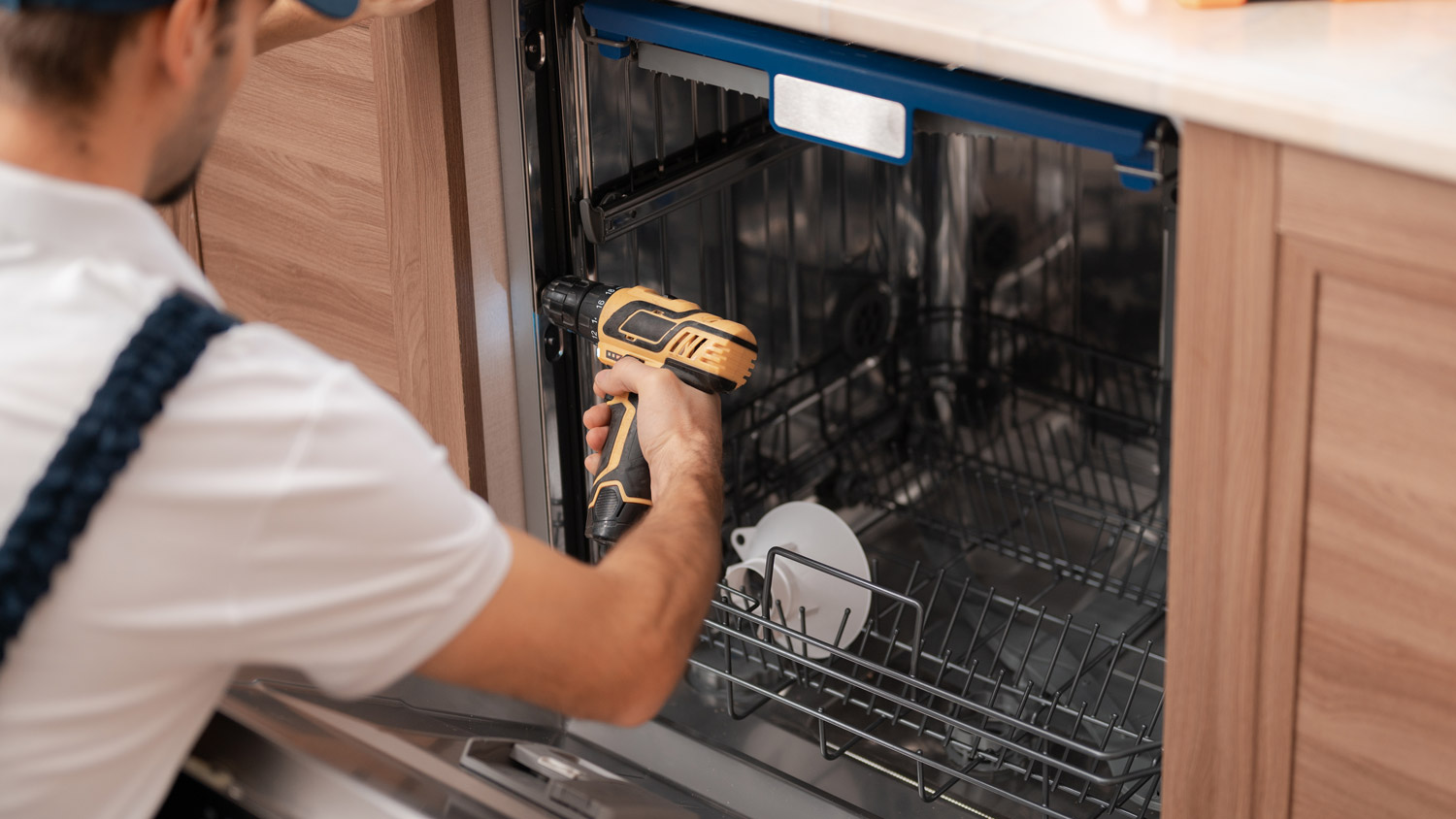
Discover the average dishwasher installation cost, key price factors, and tips to save on your project. Get transparent, expert-backed estimates.
Here’s when you should fix your cooktop—and when it’s time to get a new one


Repairing a cooktop can be a fast and affordable job.
If your cooktop isn’t at the end of its life span, try repairing before replacing.
Replace old cooktops that are malfunctioning or pose a safety risk.
Common cooktop issues include a gas burner that won’t ignite or a single electric burner that won’t come on.
Gas leaks and sparks are major cooktop problems that may necessitate replacement instead of repair.
A cooktop is an important appliance in the kitchen. If yours stops working, you’ll find you’re unable to make many of your favorite meals. But before you drop a bunch of money to replace a broken cooktop, stop to consider if it’s possible (and worth it) to repair the appliance instead.
Below, we’ll help you evaluate whether you should repair or replace a cooktop—and how much each option costs.
Note: For this guide, we are discussing standalone cooktops, which are different from gas or electric stove tops as part of a larger oven/stove appliance.
Deciding whether to repair or replace can be difficult. With our network of local pros, you can have a specialized professional figure out the next steps.
Not sure if it makes sense to repair or replace your cooktop? The table below breaks down factors that can help you decide:
| Repair Cooktop | Replace Cooktop |
|---|---|
| It’s a premium appliance that was expensive to purchase | It’s a cheap cooktop that would be cheap to replace |
| It’s still under warranty or covered by a home warranty | It is not covered by any warranty |
| It is less than 10 years old | It is 10 years or older |
| The issue is minor, or the damage is cosmetic | The issue is major |
Let’s break down these cooktop repair vs. replacement factors a little further:
If you spent the money for a premium cooktop (in the thousands of dollars), it makes a lot more sense to try to repair the cooktop than simply replace it. Repairing a cooktop may cost as little as $100 or $200—not a high price to pay to salvage an expensive appliance you’ve already invested in.
However, if you have a cheap cooktop, it’s likely not worth the cost to replace it. Instead, purchase a new cooktop, and consider spending a little more to get a higher-quality (and likely longer-lasting) model.
If your cooktop is under warranty, work with the manufacturer to get it repaired. The manufacturer will likely send a technician out, who can advise on the proper repair (or, in some cases, replacement). Similarly, if your cooktop is protected by a home warranty, you should go through your home warranty company to get the unit repaired, rather than replace it.
If your cooktop is no longer under warranty, it still may make sense to repair it rather than replace it. Just note that you’ll be footing the bill either way.
Gas, electric, and induction cooktops last anywhere from 10 to 15 years. If your cooktop is on the younger end, it makes sense to replace it. Assuming you can fix the issue, you could get another 5 to 10 years out of it.
However, if you have an older cooktop model and it’s started to malfunction, it likely makes to replace it, rather than throw more money at it to try to fix it.
Cooktops are relatively easy to fix if you’re a trained appliance installer or technician. Simply call a trusted appliance repair contractor near you, and they can likely fix basic issues in an hour or two.
Even if you don’t get your cooktop repaired immediately, you might be able to work around some issues for the time being. For instance, if the gas burner won’t light, you can use your own lighter to get the cooktop going. Or if only a single electric burner is out, you can work with the other burners temporarily.
However, if there’s a larger issue—like none of the burners are working, you can smell gas, or there are sparks when you turn the burners on—repairs may be off the table. Instead, you may need to hire a local appliance installer to install a new cooktop for you.
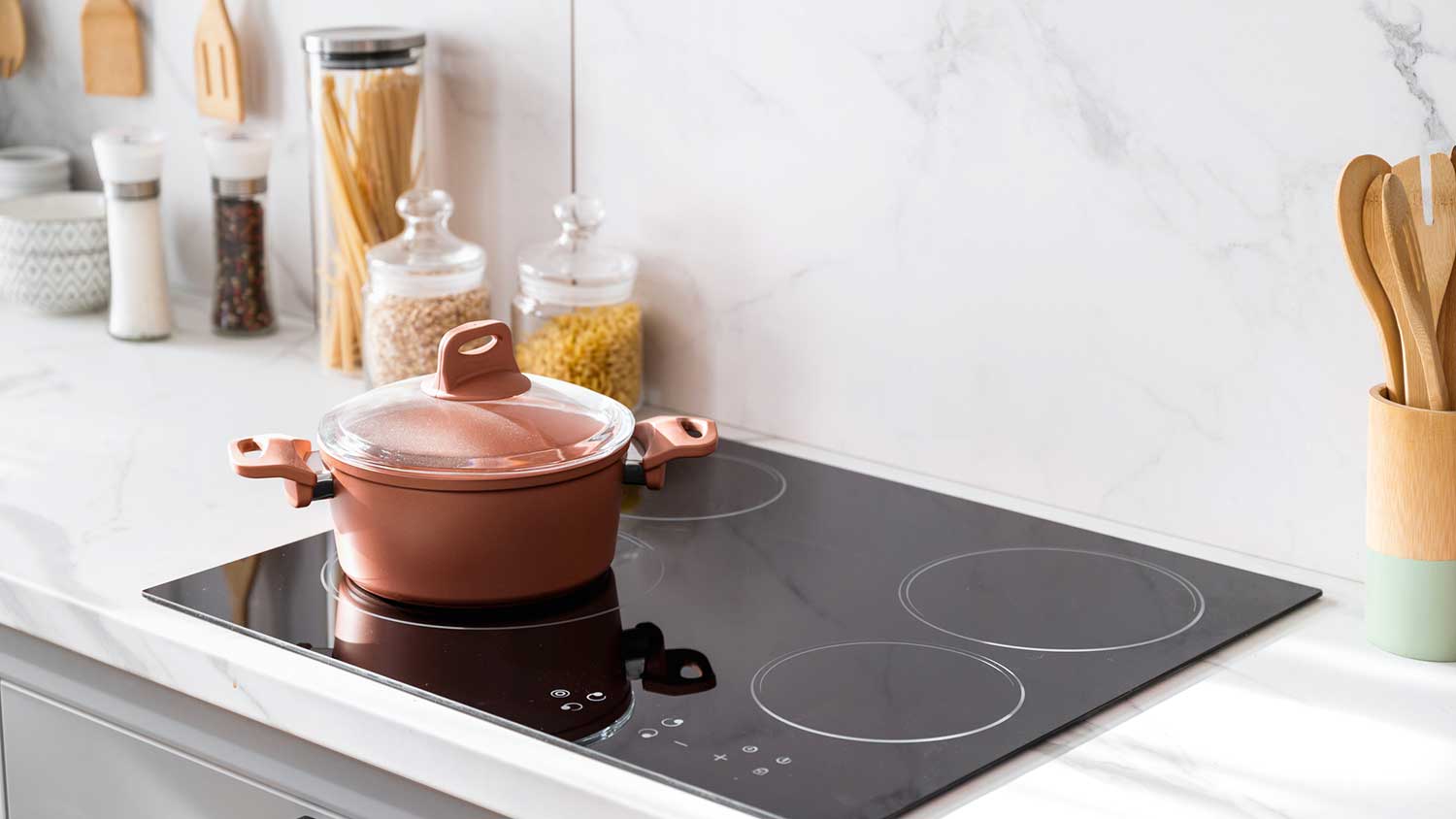
Cooktops last anywhere from 10 to 15 years. If your cooktop is new (or even somewhere between 5 and 10 years), it often makes more sense to repair it, as you can expect another 5 to 10 years out of the unit. But if your cooktop is malfunctioning and is 10 years or older, it probably makes more sense to replace it.
Repairing a cooktop is generally much more affordable than replacing a cooktop. Though pricing will vary depending on the type and extent of the issue, appliance repair costs for a cooktop generally range between $100 and $500.
Replacing a cooktop is much more expensive. Assuming your kitchen is already set up with the proper connections and surfaces—and you’re simply removing a broken cooktop to install a new one of the same stove dimensions and power source—you should budget between $70 and $155 for the appliance installation cost.
But that’s only for the labor. The units themselves can range from $300 to $2,500, depending on type of cooktop:
Electric cooktops are the most affordable and cost between $200 and $1,000 for a new unit.
Gas cooktops are slightly more expensive, at $300 to $1,500 for a new unit.
Induction cooktops cost the most; you will spend anywhere from $1,000 to $2,500 for the new cooktop. Induction cooktops are a great alternative to a gas stove.
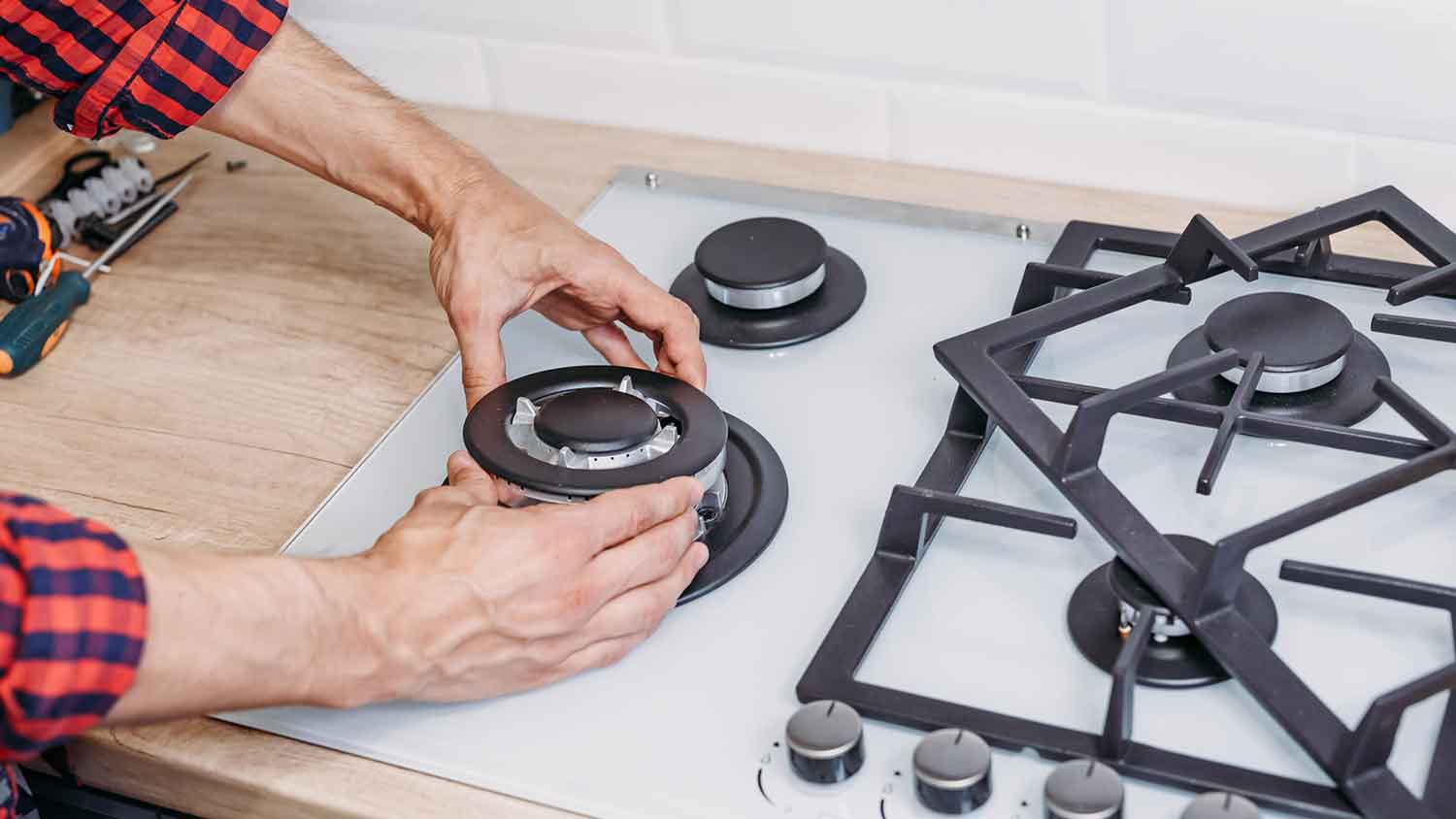
Here are some scenarios where it makes sense to repair a cooktop:
If you can’t get your gas cooktop to light, you can work around the issue by using your own lighter. Over time, this can get obnoxious. A repair tech can usually fix the issue in under an hour.
Not sure who to call to fix a gas stove? In most cases, we recommend a gas plumber near you.
If only one of your electric burners is out, there could be a loose connection. If the cooktop is otherwise still in good shape, it makes sense to have that single burner repaired rather than replace the entire unit.
Here are some other reasons your electric stove may not be working.
If you’re able to turn your cooktop on and use it without issue—but the “on” light simply won’t come on—you can call in a tech for a simple repair.
More troubling is if you get your cooktop on but can’t get the burners to turn off. Call in a pro to fix the issue as soon as possible. (Unplug the appliance for the time being.)
Unless you have ample experience working with electric appliances or gas hookups, we highly recommend hiring a pro to handle cooktop repair. Risks of DIY include electric shock and gas leaks—or simply misdiagnosing or incorrectly fixing the issue.
There are a few scenarios where you’ll need to replace the cooktop instead of repairing it, including if:
Gas cooktops are great for cooking, but they pose a lot of dangers. If you suspect your cooktop is leaking gas, shut off the gas supply and replace the unit as soon as possible.
Notice sparks when you turn on the electric cooktop? There are likely poor connections, broken coils, or frayed wires. A tech might be able to repair the issue, but you’ll probably need to replace the unit.
Even if the issue is repairable, repairing an old, failing cooktop may not make the most financial sense. If you have an old unit, use this opportunity to get a new one, rather than fix a cooktop that is likely to break down again soon.
Replacing one cooktop with another (as long as it’s the same size and type) can be quite easy for homeowners, but you may want an experienced appliance technician to inspect the old cooktop to determine if repair is possible before deciding to replace it.
In that case, it may make more sense simply to pay the appliance contractor to swap in a new cooktop for the old one, if they’re already in your home inspecting the cooktop.
From average costs to expert advice, get all the answers you need to get your job done.

Discover the average dishwasher installation cost, key price factors, and tips to save on your project. Get transparent, expert-backed estimates.

Depending on repair needs and machine age and type, the cost to replace a heating element in a dryer can vary. Learn the average repair costs.
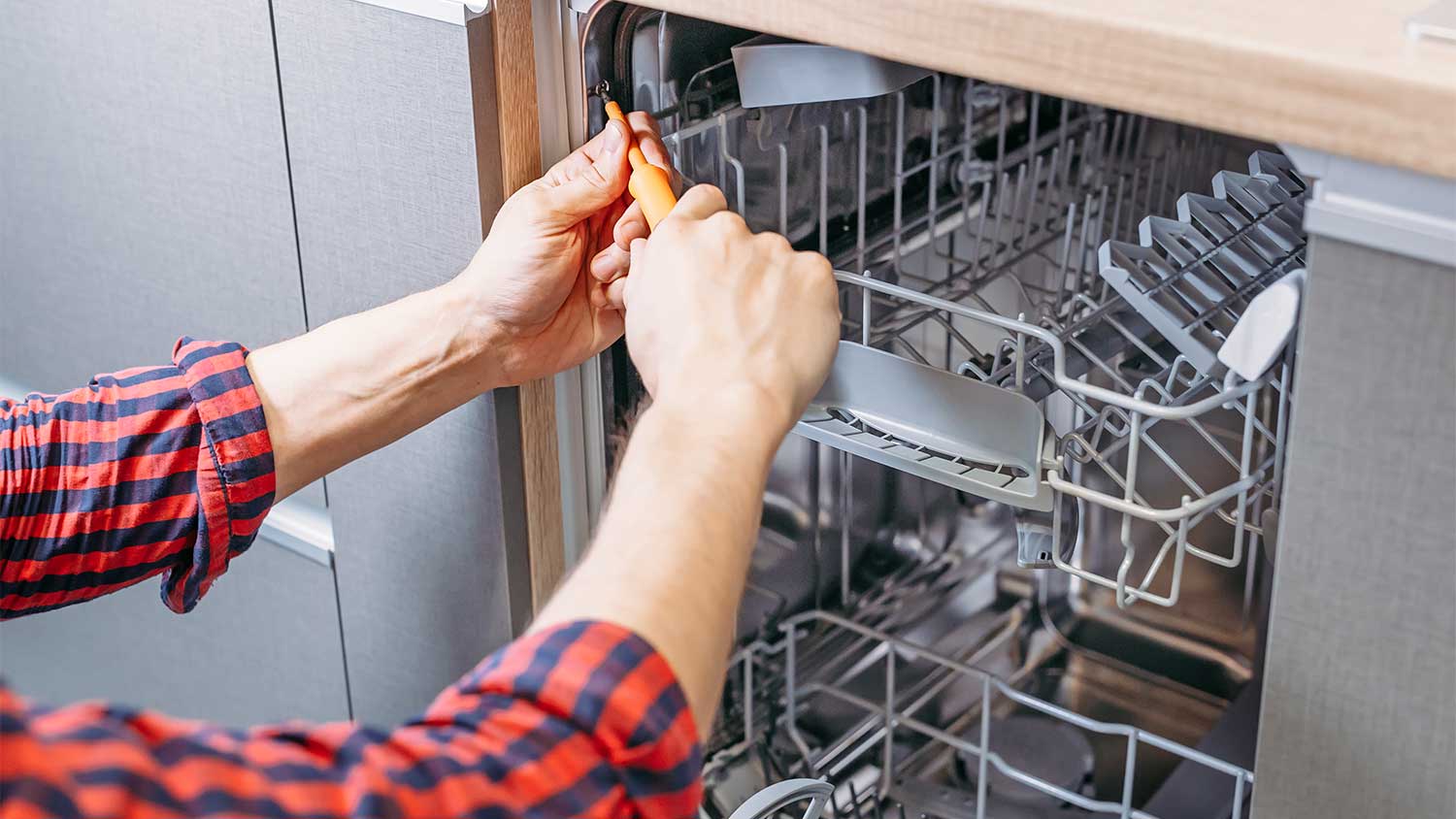
Get expert insights on dishwasher repair cost, including average prices, key cost factors, and tips to save money on repairs.

Discover why your pellet stove is not igniting and learn effective troubleshooting tips to fix the issue. Keep your home warm with our expert advice!
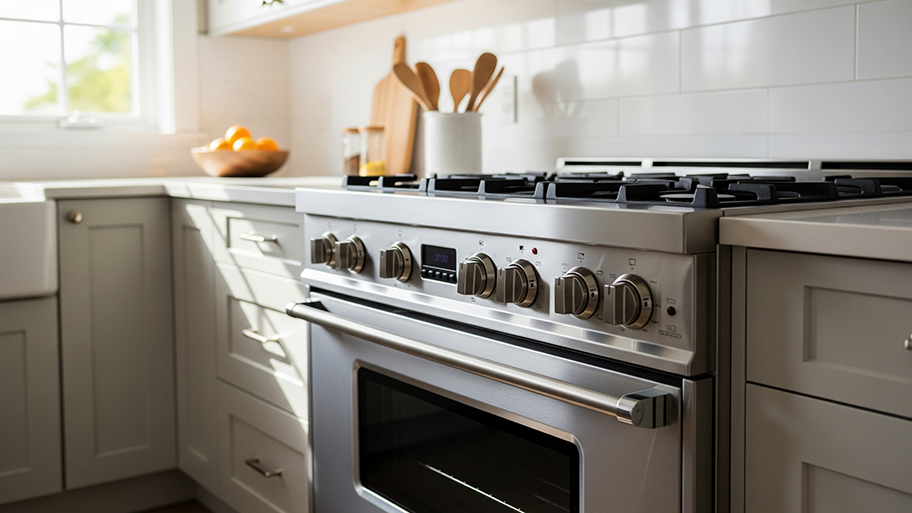
Understand the top reasons why your oven smells like gas, the severity of the issue, and how to address the causes before calling a pro.

How do wood stove fans work, and why do you need one? Learn how to boost your home’s heating efficiency with our comprehensive guide.